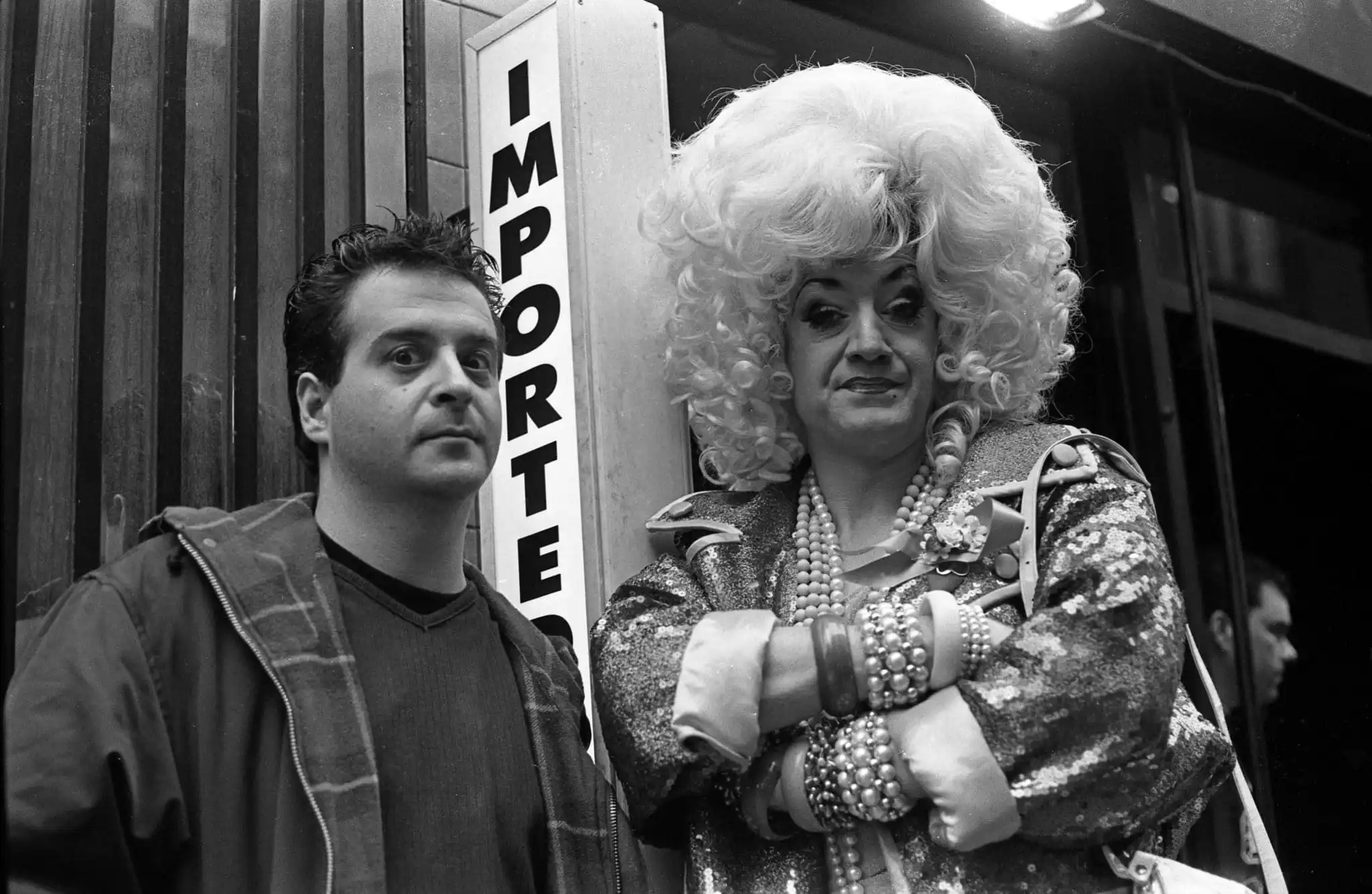Lily Savage was the UK’s First Mainstream Queen, Sorry Drag Race
Lily Savage: A queen for all ages
Thanks to RuPaul and the Drag race franchise, Drag, as an art form, has risen from the queer club scene to the mainstream media. For many around the world, RuPaul and the queens that have competed on the show will have been their first taste of drag. But, in the UK, it has been part of our culture for decades, if not longer. In the television era, there is one queen that most Brits will have heard of, and that’s the delightfully outrageous, Lily Savage.

Lily Savage from the Huffington Post
Lily Savage is a drag persona created by the national treasure that is Paul O Grady. But before every great character, first, there is imagination. And in this case, it started with Paul’s trip to the Manilla in the Philippines where Paul worked both as a barman and a waiter whilst visiting his partner. It was here where some of the inspiration for Lily’s promiscuous ways developed.
However, the majority of Lily’s personality undoubtedly came from the strong women that raised a young Paul in Liverpool. In Paul’s 2008 book, he talks about his sources of inspiration for Lily, “I’ve frequently been asked over the years who Lily Savage was based on and I’ve always answered that it was no one in particular and she was just a figment of my imagination.” Paul continues, “the truth, I realise now, is that Lily owes a lot to the women I encountered in my childhood. Characteristics and attitudes were observed and absorbed, Aunty Chris’s in particular. They provided the roots and compost for the Lily that would germinate and grow later on.”
When Paul returned to the UK following his stint in the Philippines, he was ready to put the plan into action, creating shows in various working men’s clubs around the country. Although, the big break came in the early 1980s when Paul began working as a barman in the Royal Vauxhall Tavern in South London. Here, Paul had the opportunity to practice his act in front of a familiar audience, which immediately took a shine to the quick-witted Lily. The more shows Lily fronted, the bigger the crowds became, which quickly caught the attention of TV executives that would ultimately propel Lily to a national level.

Lily Savage with comedian Mark Thomas in Soho, London, 1993 from Pink News
Lily’s career path can be considered a blueprint for drag success. In 2019, RuPaul’s Drag Race came to British TV screens through the BBC. A large proportion of the queens came from similar backgrounds to Paul O’Grady, who helped forged a pathway to success. Bagga Chipz is a regional queen who dominated Birmingham’s gay quarter for the past decade. Like Paul, Bagga secured frequent billing at some of the biggest clubs in the business, offering ample potential for producers to bridge the gap between the clubs and TV.
Despite Lily Savage being considered the OG British Drag Queen, Paul O’Grady is not a fan of RuPaul and the franchise. In a 2017 interview, Paul told BBC’s LGBTQ+ correspondent, Ben Hunte, what he really thought of the show, “No, I can’t bear it. No, I really can’t.” He continued: “In my day we had the likes of Phil Starr, who was a glorious comedian, we had Marc Fleming, Auntie Flo, Mrs Shufflewick. We had great comedians in drag. This new brigade who just parade around going, sashay, shantay – that’s not drag to me.”
Lily Savage symbolises a lost era of drag. For many, the charm of drag is that it is an underground niche that influences culture from the fringes of society. Its place in the club and pub scene means that it will forever remain edgy and will not become commercialised. Hence the argument that RuPaul’s Drag Race has taken the authenticity out of the artform.
Some may argue that Paul O’Grady is a hypocrite after “selling out” and becoming one of British TV’s most successful presenters in the 1990s, fronting shows such as An Evening with Lily Savage, Blankety Blank and Eyes Down. Although, despite going mainstream, Paul did not compromise Lily’s character or behaviour. The success did not change Lily, rather, TV changed because of Lily and her sharp and unapologetic tongue.
As Drag becomes mainstream, debate is inevitable and healthy. It is possible, however, for budding queens to remain true to the art form and also find themselves a profitable career, which earns them a living. And Lily Savage is a testament to that.



